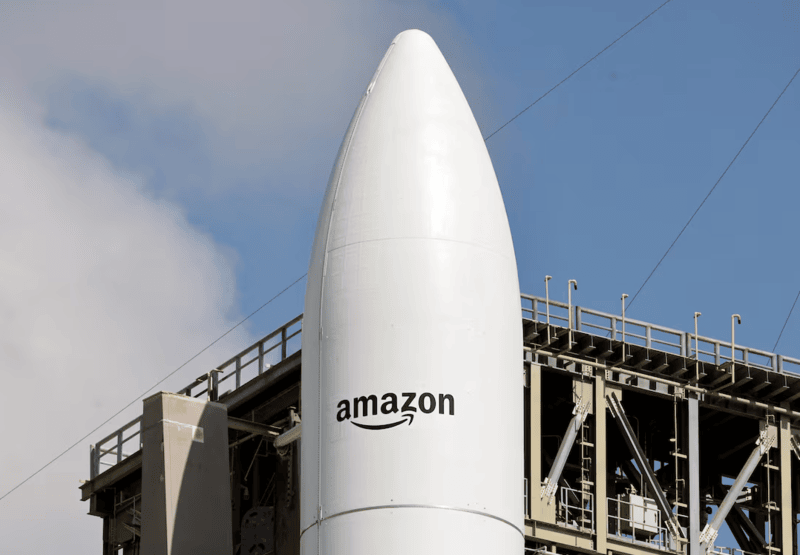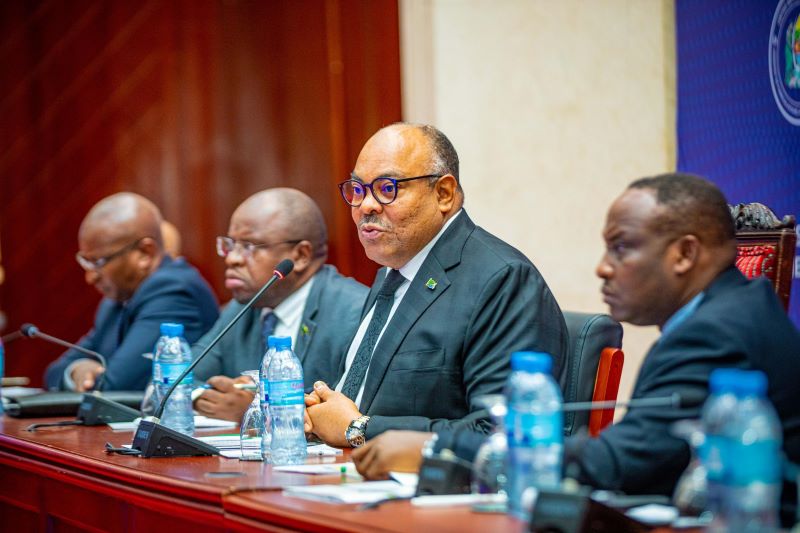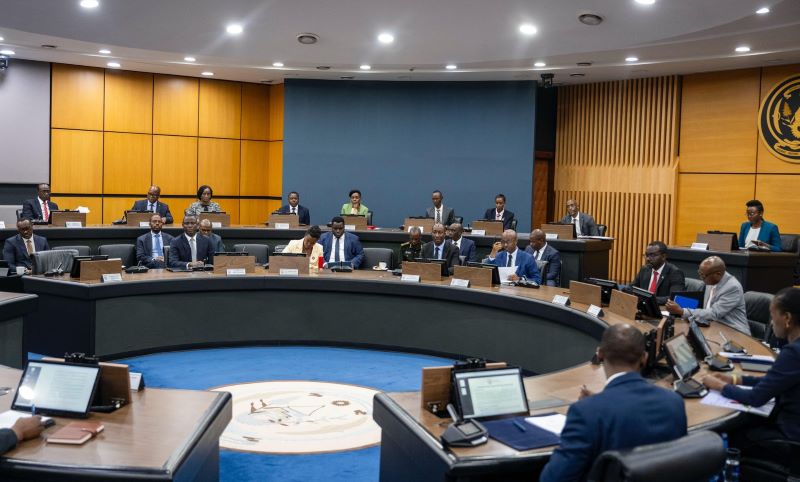Bezos vs Musk: Amazon's satellite internet takes on SpaceX's starlink

The goal was to deliver fast, affordable internet to underserved and remote regions across the globe. Amazon plans to begin full-scale production and satellite launches in 2026, with hopes of going live later this year.
Amazon has officially entered the satellite internet race with the successful launch of its first two prototype satellites under its ambitious $10 billion (Sh1.469 trillion) initiative, Project Kuiper.
The move marks a direct challenge to SpaceX by Elon Musk’s Starlink, which currently dominates the low-Earth orbit (LEO) internet sector.
More To Read
- Cloudflare explains cause of widespread internet outage
- Cloudflare outage sparks global internet chaos as major websites affected
- Top 10 most used languages for web content
- Amazon to cut 14,000 corporate jobs amid AI investment
- Taliban shuts down internet indefinitely in Afghanistan
- Kenya Space Agency shares must-know facts ahead of Sunday's lunar eclipse
The mission, dubbed Kuiper Atlas 1, lifted off Monday at 7:00 p.m. local time (2300 GMT) from Cape Canaveral Space Force Station in Florida aboard a United Launch Alliance (ULA) Atlas V rocket.
The rocket carried 27 satellites into orbit, including Amazon’s first two test units, and marks the company’s first tangible step toward building a global satellite broadband network.
“This is a major milestone for Project Kuiper and an exciting step forward in Amazon’s mission to close the global digital divide,” said Rajeev Badyal, vice president of technology for Project Kuiper.
First announced in 2019, Project Kuiper aims to deploy 3,200 satellites into LEO, orbiting approximately 1,900 kilometres above the Earth.
The goal was to deliver fast, affordable internet to underserved and remote regions across the globe. Amazon plans to begin full-scale production and satellite launches in 2026, with hopes of going live later this year.
Amazon has yet to announce pricing for the service, but has hinted it will reflect the company’s reputation for affordability.
“Atlas V is on its way to orbit to take those 27 Kuiper satellites, put them on their way, and start this new era in internet connectivity,” said United Launch Alliance (ULA)’s Caleb Weiss during the launch broadcast.
The launch had initially been delayed due to poor weather conditions earlier in the month.
Project Kuiper is a subsidiary of the e-commerce giant founded by Jeff Bezos, who also owns private space company Blue Origin.
While Amazon is late to the game, the company is playing catch-up with a clear plan: it has already booked over 80 future launches through a mix of providers, including ULA, France’s Arianespace, Blue Origin, and even SpaceX itself.
Will it beat Starlink?
Meanwhile, Starlink, launched by Elon Musk’s SpaceX in 2019, has quickly become a formidable presence with over 6,750 satellites and a user base exceeding five million customers across more than 60 countries.
In Kenya, the service gained rapid popularity, leading to a surge in demand that overwhelmed the network capacity.
As a result, Starlink temporarily halted new subscriptions in Nairobi and six neighbouring counties, including Kiambu, Machakos, Narok, Murang’a, and Nakuru, due to network congestion.
This move has intensified competition with local internet providers like Safaricom, which has expressed concerns over the growing influence of satellite internet providers in the region.
Starlink has also proven instrumental in emergency and conflict situations, providing internet access in disaster-hit areas like Morocco after the 2023 earthquake and in Ukraine during its ongoing war with Russia.
Amazon’s entry into this fast-growing field intensifies competition in an already crowded LEO orbit, which now includes OneWeb (Europe), China’s Guowang, and others.
Top Stories Today














































